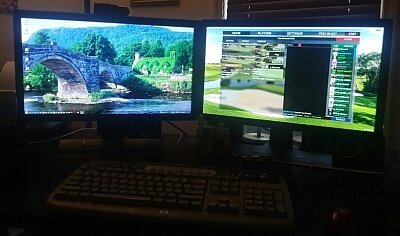- Joined
- Apr 2, 2015
Hello Intel Fans,
Before and after purchasing components for my newest Custom Build since 2012 I did a lot of research on this site and several others, as well as YouTube tutorials. I hope anyone using any Intel CPU has learned about using the latest gadgets for delidding their CPU to add better thermal paste on the IHS (integrated heat spreader). Quite the fun experience these days with very little risk. The results of using liquid steel thermal paste dropped my overclocked 8700K running at 5.1GHz by 10 to 15 degrees Celsius under load. The Noctua D15 is a HUGE air cooler but it snuggly fit into my older tower with little effort.
Here are my results from benchmarking my system. [Average idle temp is 36c. Average gaming/load temp 50c to 67c.]
https://valid.x86.fr/1n7nb8
http://www.userbenchmark.com/UserRun/8714338
https://www.3dmark.com/fs/15578614
This is my new build:
ASUS ROG STRIX Z370-E GAMING
INTEL: i7 8700k
EVGA GeForce GTX 1070 Ti FTW ULTRA SILENT GAMING:
Noctua D15 Air Cooler
Corsair Vengeance LPX 16GB DDR4 DRAM 3000MHz
--------
ATX MID Tower: NZXT 410 Phantom
(purchased in 2014)

Before and after purchasing components for my newest Custom Build since 2012 I did a lot of research on this site and several others, as well as YouTube tutorials. I hope anyone using any Intel CPU has learned about using the latest gadgets for delidding their CPU to add better thermal paste on the IHS (integrated heat spreader). Quite the fun experience these days with very little risk. The results of using liquid steel thermal paste dropped my overclocked 8700K running at 5.1GHz by 10 to 15 degrees Celsius under load. The Noctua D15 is a HUGE air cooler but it snuggly fit into my older tower with little effort.
Here are my results from benchmarking my system. [Average idle temp is 36c. Average gaming/load temp 50c to 67c.]
https://valid.x86.fr/1n7nb8
http://www.userbenchmark.com/UserRun/8714338
https://www.3dmark.com/fs/15578614
This is my new build:
ASUS ROG STRIX Z370-E GAMING
INTEL: i7 8700k
EVGA GeForce GTX 1070 Ti FTW ULTRA SILENT GAMING:
Noctua D15 Air Cooler
Corsair Vengeance LPX 16GB DDR4 DRAM 3000MHz
--------
ATX MID Tower: NZXT 410 Phantom
(purchased in 2014)

Last edited:
